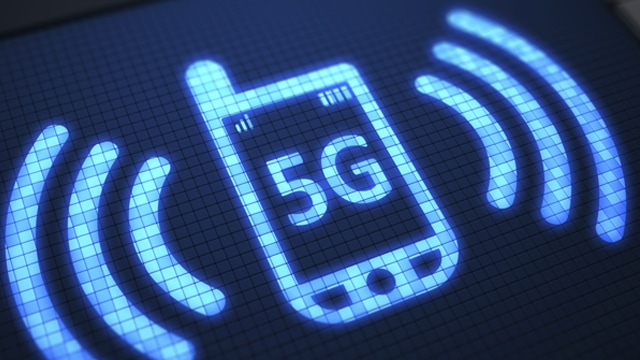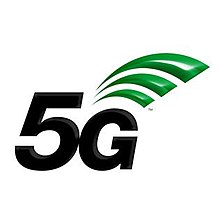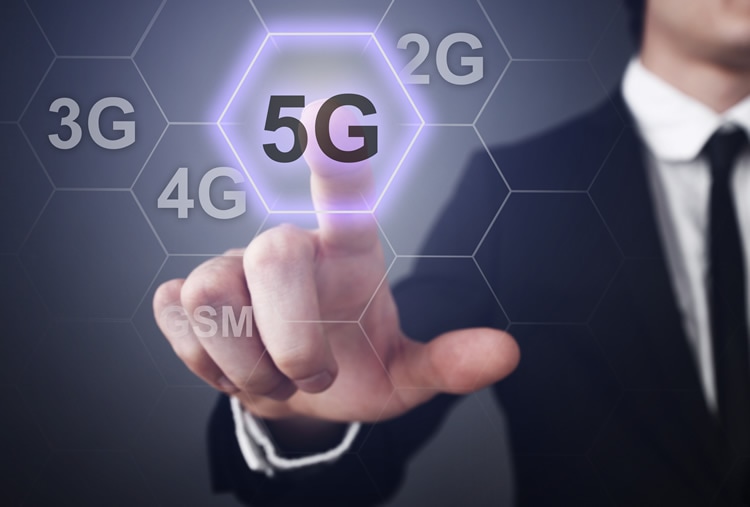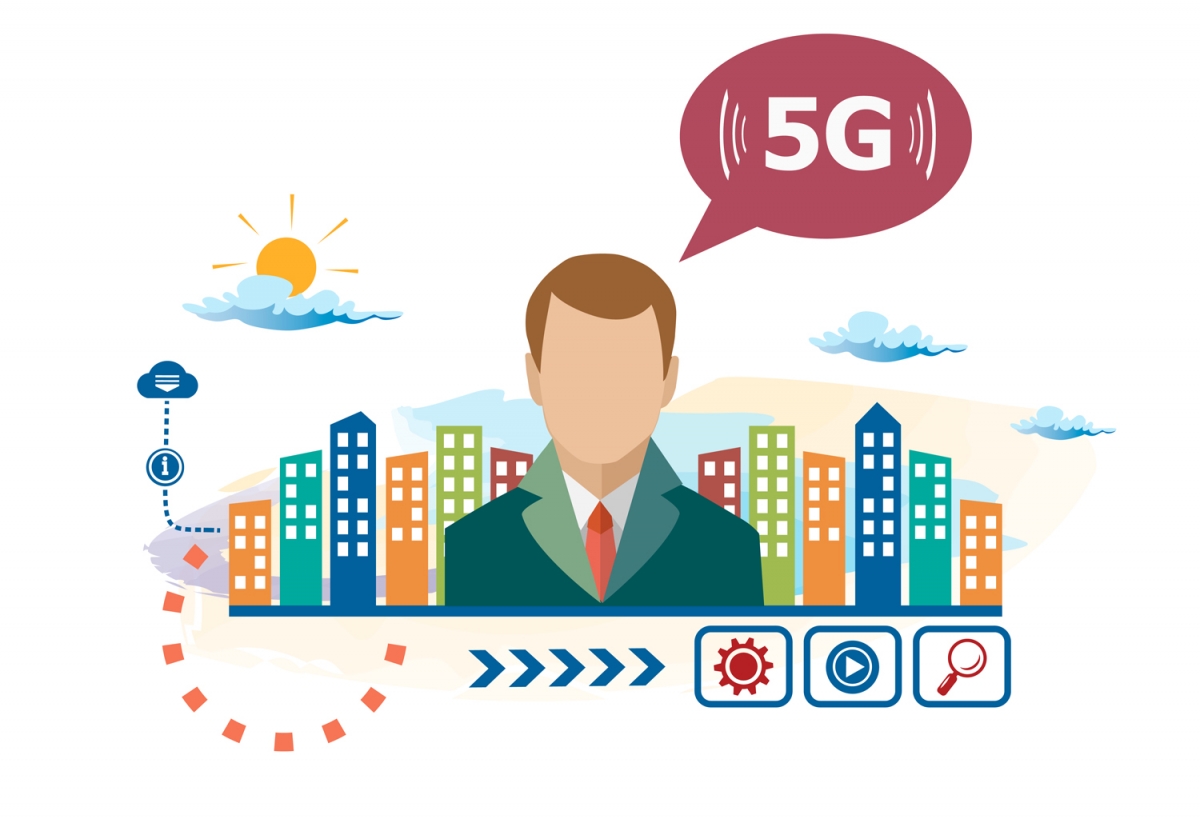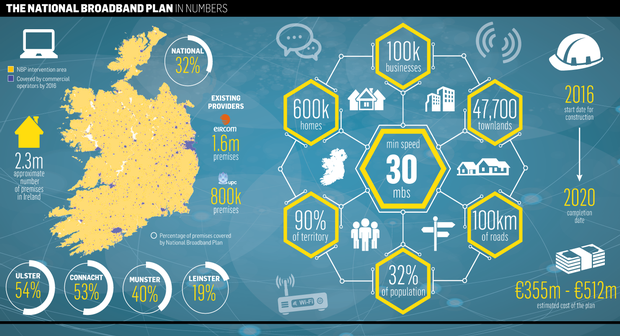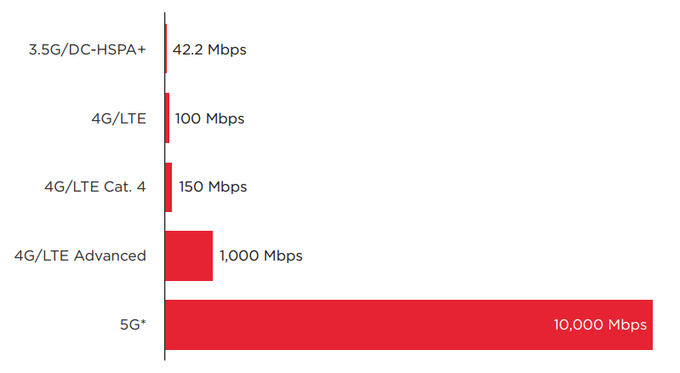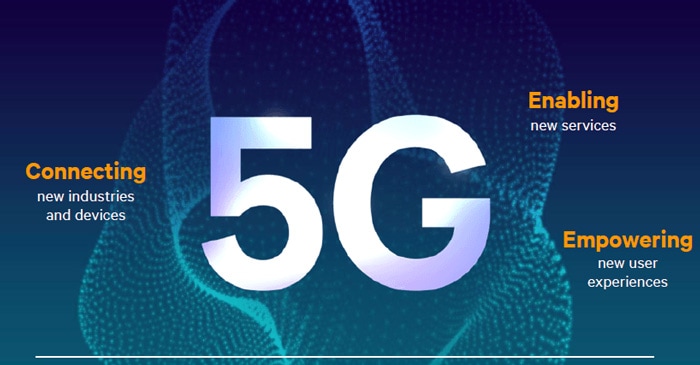The Battle for 5G Supremacy
It's still another two to three years before 5G is expected to be introduced to the consumer but steps are already being made to deploy this cutting edge technology. 5G promises to solve some of the biggest gripes facing today's 4G users. The next generation of telecommunications technology is expected to radically transform how we live and interact. 5G will facilitate the rapid increase in mobile data traffic by providing significantly more capacity, and speeds which reach above 10Gbps. Latency will be reduced significantly over 5G networks to allow for instant, real time information and controls. Another key factor of 5G will allow Internet of Things devices such as self driving cars and home sensors communicate with each other using the one streamlined network. 5G will pave the way toward a more connected society and facilitate next generation technologies such as Ultra High Definition 4K streaming and live Virtual Reality experiences. But mobile networks will be the ones required to do the heavy lifting to make 5G a reality, pumping billions of euro into R&D.
Paving the way toward 5G
The Next Generation Mobile Networks Alliance has already outlined the guidelines for the deployment of 5G. Some of outlined points include ensuring 'data rates of tens of megabits per second for tens of thousands of users and 'several hundreds of thousands of simultaneous connections for wireless sensors'. The alliance advises the 5G should be rolled out by 2020 and should be ultra reliable. It says coverage should be improved significantly compared to 4G and should lower battery consumption for Internet of Things devices.
In Ireland, ComReg has already held its first successful spectrum auction for 5G. The auction, which was for spectrum in the 3.6GHz band, saw the assignment of all 350MHz of spectrum in 594 lots spread across nine regions. The 3.6GHz band has been identified by the Radio Spectrum Policy Group as a key spectrum band for the deployment of 5G services across Europe. Vodafone secured the largest amount of spectrum of any network, paying €22.8 million for 85Mhz for use in rural areas and 105Mhz for use in cities. Meteor won 85MHz for cities and 80MHz for rural deployments. Three managed to secure 100MHz of nationwide spectrum for €20.3 million. Other bidders such as Wireless ISP, Imagine Communications bagged the rights to 60MHz of spectrum in rural regions.
ComReg has said that by issuing spectrum on a geographical basis, rather than on population coverage, Ireland will be among the first countries in Europe to have a nationwide 5G network. ComReg expects Ireland to deploy 5G one year earlier than the rest of Europe, beginning in 2019 as opposed to 2020.
In Ireland, ComReg has already held its first successful spectrum auction for 5G. The auction, which was for spectrum in the 3.6GHz band, saw the assignment of all 350MHz of spectrum in 594 lots spread across nine regions. The 3.6GHz band has been identified by the Radio Spectrum Policy Group as a key spectrum band for the deployment of 5G services across Europe. Vodafone secured the largest amount of spectrum of any network, paying €22.8 million for 85Mhz for use in rural areas and 105Mhz for use in cities. Meteor won 85MHz for cities and 80MHz for rural deployments. Three managed to secure 100MHz of nationwide spectrum for €20.3 million. Other bidders such as Wireless ISP, Imagine Communications bagged the rights to 60MHz of spectrum in rural regions.
ComReg has said that by issuing spectrum on a geographical basis, rather than on population coverage, Ireland will be among the first countries in Europe to have a nationwide 5G network. ComReg expects Ireland to deploy 5G one year earlier than the rest of Europe, beginning in 2019 as opposed to 2020.
Vodafone is in the best position to launch a nationwide 5G Network
Already having the fastest and most widespread 4G network in Ireland will be of huge benefit to Vodafone when it transitions to 5G. With over 95% 4G Population coverage, Vodafone will able to compete with other networks even if they are not the first to 5G. Vodafone is simply the most advanced and innovative network in Ireland. This also puts Vodafone in the unique position to begin refarming significantly more spectrum from its ageing 2G and 3G network. Its 4G network will act as a secondary blanket to cover areas where 5G may not be rolled out for quite some time. Vodafone is also expected to be the first network to roll out Voice over 4G later this year, further reducing its reliance on older 2G and 3G technology. Vodafone also has the advantage of being the biggest and most profitable mobile network in Ireland, allowing it to set aside more money for 5G deployment.
Vodafone's 4G+ network is the most advanced in Ireland, available in every city and many towns nationwide, consistently offering speeds in excess of 100Mbps. Their 4G+ network makes fun of rivals who struggle to reach speeds above 20 Mbps. Vodafone has also announced that its testing gigabit speeds on its mobile network, paving the way toward 5G and Vodafone's ultimate goal of a Gigabit Society.
Vodafone's 4G+ network is the most advanced in Ireland, available in every city and many towns nationwide, consistently offering speeds in excess of 100Mbps. Their 4G+ network makes fun of rivals who struggle to reach speeds above 20 Mbps. Vodafone has also announced that its testing gigabit speeds on its mobile network, paving the way toward 5G and Vodafone's ultimate goal of a Gigabit Society.
5G could wreck havoc on Eir's fibre monopoly and on the National Broadband Plan
With the arrival of 5G, both Eir's fibre business and the National Broadband Plan could be jeopardised. Eir's fibre monopoly has allowed them to operate Ireland's only national fibre network over the past number of years. Eir's rollout of Fibre To The Home gives customers access to speeds reaching 1Gbps, significantly faster than current Fibre To The Cabinet solutions. However, with the onslaught of 5G nigh, Fibre solutions may very well be rendered obsolete. 5G will allow mobile networks such as Three and Vodafone to provide broadband using 5G spectrum. This broadband will be multiple times faster and cheaper than fibre, potentially destroying the National Broadband Plan. 5G will allow broadband to be rolled out significantly faster, especially in rural areas because the technology will be wireless and only require a base station to broadcast a signal.
It would be a costly mistake if the National Broadband Plan fails because of 5G. The government may have wasted years of time and effort only to roll out a program which was already unfit for the time. The longer before the plan is put into action, the larger the risk it faces from 5G.
It would be a costly mistake if the National Broadband Plan fails because of 5G. The government may have wasted years of time and effort only to roll out a program which was already unfit for the time. The longer before the plan is put into action, the larger the risk it faces from 5G.
Three needs 5G more than any other network
Carrying more data than all the other networks combined has taken its toll on Three's outdated, inefficient and unreliable network. Infamous for swathes of land covered only by 2G or Edge and for terrible 4G speeds which continue to deteriorate, Three needs 5G more than any other network. Their 'Big Upgrade Program' has resulted in nothing more than the availability of slow 4G in some more towns and their claims of a 'State of the Art' network are ridiculous.
Three will have to get 5G right if they want to keep customers on board. They will need to roll out 5G more aggressively than any other network as their current network is crippled by congestion. Three will have to ensure that their 5G network reaches everyone, not just those in cities or big towns. Unlike Vodafone and Meteor, they won't be able to use their 4G network as a blanket to fall back on because of its poor penetration, especially in rural areas. Perhaps the biggest issue for Three is that the majority of its customers spend most of their time on 3G networks, meaning Three won't be able to refarm all of its 3G spectrum. Three remains the only Irish network not to have HD Voice and has no plans to introduce Voice over 4G any time soon. They also have Ireland's smallest 4G+ network. 5G will be make or break for Three. But I think if they can successfully deploy 5G nationally, they may finally be able to compete with Vodafone.
Three will have to get 5G right if they want to keep customers on board. They will need to roll out 5G more aggressively than any other network as their current network is crippled by congestion. Three will have to ensure that their 5G network reaches everyone, not just those in cities or big towns. Unlike Vodafone and Meteor, they won't be able to use their 4G network as a blanket to fall back on because of its poor penetration, especially in rural areas. Perhaps the biggest issue for Three is that the majority of its customers spend most of their time on 3G networks, meaning Three won't be able to refarm all of its 3G spectrum. Three remains the only Irish network not to have HD Voice and has no plans to introduce Voice over 4G any time soon. They also have Ireland's smallest 4G+ network. 5G will be make or break for Three. But I think if they can successfully deploy 5G nationally, they may finally be able to compete with Vodafone.
5G will be crucial for Meteor to attract new customers
Being the smallest mobile network in Ireland hasn't stopped Meteor's push toward innovation. They were the first to launch 4G and recently were the first to launch Wifi Calling. With the second largest 4G footprint in Ireland, second only to Vodafone, Meteor is reasonably well positioned to launch 5G. It's 4G network has expanded hugely over the last year and has followed Vodafone by launching 4G+, paving the way to 5G.
However, similar to issues faced by Three, Meteor still can't match the reliability and quality of Vodafone's cutting edge 4G network. When Meteor launches 5G, they can rely on their widespread 4G network as a backup, but its 4G speeds have been declining and are much slower than Vodafone's due to a lack of capacity. These issues will only be exacerbated in the coming years with increased mobile data traffic. Meteor generally spends less than Vodafone and Three on network upgrades because of its smaller size and customer base which may restrict its initial rollout of 5G.
However, similar to issues faced by Three, Meteor still can't match the reliability and quality of Vodafone's cutting edge 4G network. When Meteor launches 5G, they can rely on their widespread 4G network as a backup, but its 4G speeds have been declining and are much slower than Vodafone's due to a lack of capacity. These issues will only be exacerbated in the coming years with increased mobile data traffic. Meteor generally spends less than Vodafone and Three on network upgrades because of its smaller size and customer base which may restrict its initial rollout of 5G.
Conclusion: Ireland's Gigabit Society is nigh
5G will transform Ireland. It will allow us to connect in ways we never imagined before, make industries more efficient by allowing machines to seamlessly communicate with each other and will facilitate a new era of driverless vehicles including cars, trucks and drones. Vodafone has already tested gigabit speeds on its mobile network, a milestone paving the way for Ireland's Gigabit Society. However, with its dramatically increased speed, capacity and efficiency, 5G may potentially eliminate the need for fibre, thus rendering the National Broadband plan obsolete. With ComReg already selling spectrum for 5G and companies such as Qualcomm already designing 5G compatible modems to be used in smartphones that fit in our pockets, it's fair to say Ireland's Gigabit Society is nigh.
Published: 23/06/2017
